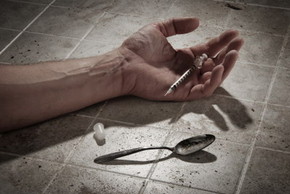
If you are faced with a drug addiction problem, or you know someone who is chained to the habit, then intervention might be the best course of treatment. Intervention motivates addicts to seek drug abuse or alcohol addiction challenges. Even if you have a compulsive eating problem or other addictive behaviours, then intervention might be your answer. It really does not matter whether it is eating disorders and substance abuse or both and more.
Intervention can take the form of a heart-to-heart conversation with a loved one faced with an addiction problem, or it can take the shape of a session with a professional counsellor. Regardless of the delivery method, intervention may help you or your loved one start the road to recovery.
When it comes to addiction, the affected person often struggles to realize the problem or acknowledge it. To help a person recover, a more focused approach is required, and intervention is perhaps one of the most focused of all treatment methods. For intervention to work, you may have to join forces with others, rather than a heart-to-heart conversation with the affected person.
Some of the addictions that may require intervention are:
Alcoholism
Prescription drug abuse
Compulsive gambling
Compulsive eating
Street drug abuse
Most individuals with addiction often deny they have a problem. Therefore, they are less willing to seek treatment. Some do not even recognize the negative effects of substance abuse. If you have a loved one who is addicted to drugs, they may not even realize the pain and suffering they cause the entire family.
However, with intervention, the harsh realities of substance abuse come to light, and this fact alone may spur your loved one to seek treatment. The intervention, however, must be structured and conducted with the consent of the addict for it to work. To increase chances of recovery, a professional counsellor should be present during the intervention.
The Basic Structure of an Intervention
During the intervention, all the interested parties come together to talk to the addict about the consequences of drug use and addiction. In consultation with the doctor, friends and family confront the addict and:
• Offer detailed examples of destructive behaviours of the addict and their impact on the rest of the family or friends.
• Present a prearranged treatment program with clearly detailed steps, objectives, and plan.
• Spell out the actions of every person in the intervention if the person refuses to accept the treatment program.
Why Consulting With an Addiction Specialist
An addiction specialist, or a professional counsellor, helps organize an effective intervention. Counsellors are highly trained individuals, knowledgeable in current treatment options as well as intervention approaches.
With the aid of a counsellor, you can easily set up an intervention that caters for the particular needs of your case. For people suffering with opioid use disorder, these experts can also help you learn what is Zubsolv used for to counteract your cravings and relapses.
Additionally, counsellors are in a better position to develop a treatment plan with a high chance of success. If the intervention works and the person goes into the treatment plan, then the addiction specialist makes a follow-up to ensure your loved one does not relapse.
However, not all centres offer effective intervention services. It might be prudent to do a bit of research on current intervention models. If this sounds like a task best left to medical professions, then the folks at http://www.arise-network.com/ might match you up with the right counsellor for your needs.
